Digging into the crates , here’s a classic interview from 2006 with Afrika Baby Bam of the Jungle Brothers. It was done in Miami by our good friend Tony Muhammad. This is just as Baby Bam was starting a solo career which eventually led him to Pagan Society where all sorts of controversy jumped off a few years back, because of the costume make up he was wearing…Any way enjoy the throwback convo..
 Afrika Baby Bam is a legend that needs to be recognized for his ground-breaking efforts within Hip-Hop music and culture. He is credited for coining the genre phrase Native Tongues, which encompasses the fun, witty, mischievous yet intelligent sounds of the likes of artists that emerged during Hip Hops golden era such as his group The Jungle Brothers, De La Soul, A Tribe Called Quest, Black Sheep and the more known today The Roots, Common and the Chicago based All Natural. He is also credited for naming noted artists such as Q-Tip and The Beatnuts.
Afrika Baby Bam is a legend that needs to be recognized for his ground-breaking efforts within Hip-Hop music and culture. He is credited for coining the genre phrase Native Tongues, which encompasses the fun, witty, mischievous yet intelligent sounds of the likes of artists that emerged during Hip Hops golden era such as his group The Jungle Brothers, De La Soul, A Tribe Called Quest, Black Sheep and the more known today The Roots, Common and the Chicago based All Natural. He is also credited for naming noted artists such as Q-Tip and The Beatnuts.
Afrika along with his partner Mike G pioneered various innovations within Hip Hop, including the late 80s House-Rap fusion classic Girl, I’ll House You and various DrumNBass oriented jams in more recent years. Currently, he is working on a solo project which is oriented to bringing back the zany, mischievous yet intelligent sounds that the Native Tongues have been known for yet at a much more high impacting Parliament Funkadelic oriented level.
As an artist, he has also been spearheading an organic movement within Hip Hop with an anthem type song, ItalStew, featured in Urban Americas first ever Organic Hip Hop Compilation Album. He also hosted the entertainment portion of the first ever Organic Hip Hop Symposium at Florida International University Biscayne Bay Campus in 2004. He will be fulfilling this strong role at the 3rd Annual Organic Hip Hop Symposium on February 24th, again, at Florida International University Biscayne Bay Campus. UAN had the opportunity to speak to this Hip Hop mentor about his upcoming projects, the current state of the music industry and about the Organic Hip Hop Movement.
http://www.youtube.com/watch?v=Z9iYBtnckio
UAN: Ive been informed that youre currently working on a solo project. What direction are you taking with your new album? Generally, how would you describe the sound youre bringing?
ABB: My new album is called “BABYBAM”! I open the album with a song called “The Mentor”. The song answers the question “How do you stay successful as an artist in the entertainment business?” My new album is all about real Hip Hop with integrity. I don’t beat you over the head with it. I’m not preachy. I say true things that are easy to understand and that will make you laugh at times. Most of my songs come listening to people when they talk to me. You’ll enjoy it. I put samples of it up for you to check out at www.myspace.com/babybam1.
UAN: Musically, what direction do you feel the industry is headed towards right now?
ABB: Musically the industry is headed toward keeping things on a pop vibe in every genre. From RNB to Hip Hop to Reggae to Rock to Country, theyre promoted as pop music. The indies are the only labels creating new styles of music. The majors have a big mouth to feed called “shareholders” and they can’t come up short of platinum with something that’s not a self-seller.
UAN: I remember growing up and the news media stereotyping Hip Hop back then for being “violent” and “overly sexual” and so it would get very little air play. Interestingly, today there seems to be a huge lack of balance as to what is being marketed in the industry and it seems like Hip-Hop today is perpetuating what it was most criticized for back in the day. Would you consider what you are doing now out of a sense of mission to restore some balance in Hip-Hop?
ABB: There has been an imbalance for a while now. Musically “Hip Hop” in general has been about catching a vibe and doing what feels right. That could be bragging and boasting, battling, freestyling. Social commentary gave the art form balance but there are no rules and this is the entertainment business and people for the most part want to be entertained. Unfortunately that puts the craft back in the gutter but that’s where the craft was born!
http://www.youtube.com/watch?v=QeiQ8mc_Uts
UAN: What other artists are you currently building with and on what level?
 ABB: Aside from producing records for myself I’ve had the privilege of collaborating with Salam Remi. Salam Remi is a great producer and one of Hip Hop’s seven wonders. I’ve also been building with Prince Paul the inventor of putting 1 minute skits on a record. Prince Paul is a prodigy when it comes to creating sounds with sampled music.
ABB: Aside from producing records for myself I’ve had the privilege of collaborating with Salam Remi. Salam Remi is a great producer and one of Hip Hop’s seven wonders. I’ve also been building with Prince Paul the inventor of putting 1 minute skits on a record. Prince Paul is a prodigy when it comes to creating sounds with sampled music.
I will also be working with (spoken word artist) Kimani and (Drunk) Drew from Area 61 on TV and Film projects. I’m working with DJ 2nen to host mixtapes for the new Baby Bam album and a Golden Age mixtape that features classic Hip Hop jams from the Native Tongues Posse and many others.
UAN: I am aware of you plans for a “Baby Bam” clothing line. What are your plans with this?
ABB: For the clothing line I plan to do some creative things with camouflage for the urban jungle look I made popular in Hip Hop fashion. I’m also designing Baby Bam classic Hip Hop t-shirts.
UAN: What other goals are you looking to pursue in 2006?
ABB: Goals for 2006 are to release the new “Baby Bam” album and Jungle Brother album Worldwide on Jbeez/Baby Bam Records. I’m doing voice-overs for a cartoon coming out on Nickelodeon. I’m also currently developing a new artist named KIP for my label Baby Bam Records. 2oo6 is the year I establish myself as a business owner of Hip Hop culture. I will also be setting up a website for the label/clothing line with a blog to give my free advice to those who have questions about how to make it in the music business.
UAN: Reflecting on the concept of taking ownership of Hip Hop culture, you are currently getting ready to host the entertainment portion of the 3rd Annual Organic Hip Hop Symposium. How did this whole Organic Hip Hop movement begin for you, including the making of the song Ital Stew?
ABB: The movement and the song “ItalStew” began for me while I was in the studio. I’ve always had a foot in the matrix of the music business but I gave myself the opportunity to do something that was purely from me and not industry driven. I’ve tried many different directions in my career but I never forgot where I came from musically and that’s what I used to create the song which led to the movement. The song basically says that todays rap music is like eating fast food. It all taste the same and you can get sick from eating too much of it. Organic Hip Hop or Vegetarian Hip Hop is music that is meant to nourish and give you different flavors to enjoy like a home-cooked meal. Its something you make from the heart when your mind is free to make something that’s not just commercially driven. I simply invested money from the game back into the culture and that’s righteous.
http://www.youtube.com/watch?v=_8eFK8GLiUk
UAN: What are you looking forward to most with this year’s Organic Hip Hop show?
ABB: I’m looking forward to seeing a very humble and generous soldier by the name of Brother J. We were born into the Hip Hop world together and even though our paths don’t cross much we’ve always had a rock solid respect for each other and a similar sense of importance for what Hip Hop culture means in our lives. I had the honor of meeting him in high school and he’s been my urban jungle brother ever since. Kimani from the Original Kings of Floetry has a similar spirit and to see them both standing in the same room would be an honor in of itself. With this years movement I expect the movement to nourish whoever attends. I hope we all gain something positive from it that inspires us all to do great things for Hip Hop.
UAN: Any final words?
ABB: I’d like to thank you Tony Muhammad for staying dedicated to being a real person with integrity and representing Hip Hop culture in the same way. Urban America is the only paper in the world that is committed to keeping Hip Hop out of the matrix and being truly supportive of the community. Stay positive and keep Hip Hop Fresh for 2006!
Afrika Baby Bam could be reached at BABYBAMJAMS@AOL.COM.
Interview done by Tony Muhammad











 This is the conversation we had with Apakalips a long time fixture in the San Jose rap scene who just released his masterpiece of a solo album called ‘The Otherside‘ Originally from Southern Cali, this community activist/ school teacher started out around 2002 with a group called Tributairies .They were best known for blowing up the Iguanas Cafe in downtown San Jose where they sparked off Lyrical Discipline.This was a weekly Friday night gathering which attracted emcees from all over the South Bay who would come through and test their skills.It was done in the same vein as the Lyricist Lounge in NY, the Good Life in LA or the now legendary underground parties and freestyles sessions at 4001 Jackson street in Oakland put together by Mystik Journeymen and the Living Legends crew.
This is the conversation we had with Apakalips a long time fixture in the San Jose rap scene who just released his masterpiece of a solo album called ‘The Otherside‘ Originally from Southern Cali, this community activist/ school teacher started out around 2002 with a group called Tributairies .They were best known for blowing up the Iguanas Cafe in downtown San Jose where they sparked off Lyrical Discipline.This was a weekly Friday night gathering which attracted emcees from all over the South Bay who would come through and test their skills.It was done in the same vein as the Lyricist Lounge in NY, the Good Life in LA or the now legendary underground parties and freestyles sessions at 4001 Jackson street in Oakland put together by Mystik Journeymen and the Living Legends crew. The ‘Otherside‘ covers many topics including, California’s unique contributions to Hip Hop and its b-boy, b-girl tradition and its cultural influences. During our interview we talked about how Hip Hop is a form of communication and within it cultural expressions and activities like dance and rap go way beyond Hip Hop, and in fact are deeply rooted in traditional Mayan, Aztec and African traditions. Apakalips felt that it was important that we view Hip Hop with a larger historical and cultural lens.
The ‘Otherside‘ covers many topics including, California’s unique contributions to Hip Hop and its b-boy, b-girl tradition and its cultural influences. During our interview we talked about how Hip Hop is a form of communication and within it cultural expressions and activities like dance and rap go way beyond Hip Hop, and in fact are deeply rooted in traditional Mayan, Aztec and African traditions. Apakalips felt that it was important that we view Hip Hop with a larger historical and cultural lens.




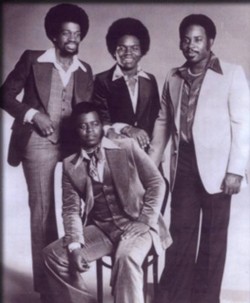
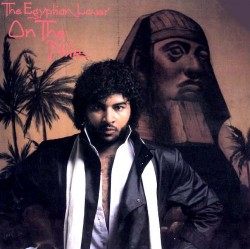 A lot of the music in LA’s early Hip Hop days was classified as electrofunk and is often associated with the sound Afrika Bambaataa established with his song Planet Rock. However, when speaking with the early DJs from LA, they say they were already into that sound way before hearing Planet Rock.
A lot of the music in LA’s early Hip Hop days was classified as electrofunk and is often associated with the sound Afrika Bambaataa established with his song Planet Rock. However, when speaking with the early DJs from LA, they say they were already into that sound way before hearing Planet Rock.
 This is an important conversation where Hip Hop pioneer Grand Wizzard Theodore speaks for himself and explains the origins of the Scratch.. Up to that point, many had come to believe that Theodore was trained by Grandmaster Flash who started off in a crew called the L-Brothers (L=Livingston which is Theodore’s last name). I recall interviewing Flash back in 1996 at length and he broke all this down..noting that Theodore was his student..
This is an important conversation where Hip Hop pioneer Grand Wizzard Theodore speaks for himself and explains the origins of the Scratch.. Up to that point, many had come to believe that Theodore was trained by Grandmaster Flash who started off in a crew called the L-Brothers (L=Livingston which is Theodore’s last name). I recall interviewing Flash back in 1996 at length and he broke all this down..noting that Theodore was his student.. The other unintended story that needed to be put to rest was Theodore spilling beer on a turntable and inventing the scratch while wiping the record clean.. This came about after a humorous Heineken commercial aired a few years back depicting that. It was part of a series of commercials the beer company did where they fictionalized how the accidents around the beer created the Peace sign, the Lighter, the scratch etc.. Unfortunately because there had been so much historical distortion around the legacy of Theodore, many didn’t find the humor in the commercial resulting in an open letter and protest to the beer company.
The other unintended story that needed to be put to rest was Theodore spilling beer on a turntable and inventing the scratch while wiping the record clean.. This came about after a humorous Heineken commercial aired a few years back depicting that. It was part of a series of commercials the beer company did where they fictionalized how the accidents around the beer created the Peace sign, the Lighter, the scratch etc.. Unfortunately because there had been so much historical distortion around the legacy of Theodore, many didn’t find the humor in the commercial resulting in an open letter and protest to the beer company. New York, NY—Hip-Hop Culture’s oldest activist group seeks help from elected officials, law enforcement and the media on denouncing and disbanding so-called “Hip-Hop” websites, radio stations and promotion companies which blatantly disrespect Hip-Hop Culture and its true origins and principles.
New York, NY—Hip-Hop Culture’s oldest activist group seeks help from elected officials, law enforcement and the media on denouncing and disbanding so-called “Hip-Hop” websites, radio stations and promotion companies which blatantly disrespect Hip-Hop Culture and its true origins and principles.






 Much of it centered around artists like George Clinton, Bootsy Collins George Duke and Roger & Zapp to name a few. Simply put, brothers out west brought p-funk to the hip hop round table.
Much of it centered around artists like George Clinton, Bootsy Collins George Duke and Roger & Zapp to name a few. Simply put, brothers out west brought p-funk to the hip hop round table.



 Shock G pointed that funk was heavy all around the country except New York where he spent a lot of time growing up. He went on to explain that there were two things going on in New York City..”First of all, disco had taken off in a big way and hip hop was starting to become big among the younger people. The result of this activity was that New York missed out on the P-funk”.
Shock G pointed that funk was heavy all around the country except New York where he spent a lot of time growing up. He went on to explain that there were two things going on in New York City..”First of all, disco had taken off in a big way and hip hop was starting to become big among the younger people. The result of this activity was that New York missed out on the P-funk”. OGs of the Bay Area hip hop scene will recall that C-Funk an East Palo Alto native started out with the name Captain Crunch, but a certain cereal company came forth with some court orders forcing him to change. However, C-Funk along with his partner Mozilla the Funk Dragon have definitely made some noise around town.
OGs of the Bay Area hip hop scene will recall that C-Funk an East Palo Alto native started out with the name Captain Crunch, but a certain cereal company came forth with some court orders forcing him to change. However, C-Funk along with his partner Mozilla the Funk Dragon have definitely made some noise around town. the Black Panther of hip hop, CEO of Scarface Records and producers for the hit group Conscious Daughters , is himself no stranger to the funk. On his last album… ‘
the Black Panther of hip hop, CEO of Scarface Records and producers for the hit group Conscious Daughters , is himself no stranger to the funk. On his last album… ‘
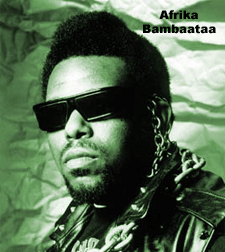
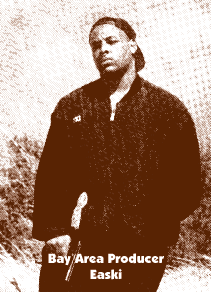 En Vogue producers Foster & McElroy, George Clinton collaborator and long time funkateer Dave Kaos and SF rap start JT The Bigga Figga. All have come to the hip hop roundtable with funk in their back pocket.
En Vogue producers Foster & McElroy, George Clinton collaborator and long time funkateer Dave Kaos and SF rap start JT The Bigga Figga. All have come to the hip hop roundtable with funk in their back pocket.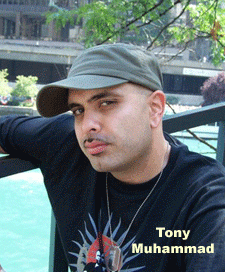 The marked end of The Mayan Calendar on December 21st, 2012 as noted in the KRS-One song Aztechnical does not mean that life on planet Earth itself is going to end any time soon due to cataclysmic events. But rather, just as many
The marked end of The Mayan Calendar on December 21st, 2012 as noted in the KRS-One song Aztechnical does not mean that life on planet Earth itself is going to end any time soon due to cataclysmic events. But rather, just as many  It is because of Unconditional Love for the people, that one of the most influential Founding Fathers of Hip Hop culture, Afrika Bambaataa, was able to end gang violence in The South Bronx in the early 1970s. It was gang violence that was leading to heightened levels of death among the youth. In a gradual process, after entering into Divine Knowledge that he had learned from different communities at the time, including The Nation of Islam, The Nation of Gods and Earth and The Moorish Science Temple. He utilized that knowledge to separate the darkness (or condition of gross ignorance) that lurked in his own mind and discovered the Divine Light that was buried within him the whole time of his own existence. From there, he summoned the Divine Forces within himself and all of the Forces outside of himself. They manifested themselves in the form of the gang members in the community, which he considered to be his family. He called for peace, and established it under the banner of the first Hip Hop activist organization called Universal Zulu Nation.
It is because of Unconditional Love for the people, that one of the most influential Founding Fathers of Hip Hop culture, Afrika Bambaataa, was able to end gang violence in The South Bronx in the early 1970s. It was gang violence that was leading to heightened levels of death among the youth. In a gradual process, after entering into Divine Knowledge that he had learned from different communities at the time, including The Nation of Islam, The Nation of Gods and Earth and The Moorish Science Temple. He utilized that knowledge to separate the darkness (or condition of gross ignorance) that lurked in his own mind and discovered the Divine Light that was buried within him the whole time of his own existence. From there, he summoned the Divine Forces within himself and all of the Forces outside of himself. They manifested themselves in the form of the gang members in the community, which he considered to be his family. He called for peace, and established it under the banner of the first Hip Hop activist organization called Universal Zulu Nation. “It is Afrika Bambaataa to whom named and called each entity of BBoys/BGirls/DJaying/MCs/Aerosol Writing and adding The Most important Knowledge as the main Element of Hip Hop Culture and Brother KRS One helped to add more, with a few other as Plus Elements to the main Key elements of Hip Hop Culture. No one else never used or thought of naming each entity of the Culture an Element or to say that this Movement that we all are doing is called Hip Hop Culture or to recognize it as a World Movement. The Birth of this movement is The Bronx, New York City, New York Republic, but Rap is as Ancient as The creation of Humans itself.”
“It is Afrika Bambaataa to whom named and called each entity of BBoys/BGirls/DJaying/MCs/Aerosol Writing and adding The Most important Knowledge as the main Element of Hip Hop Culture and Brother KRS One helped to add more, with a few other as Plus Elements to the main Key elements of Hip Hop Culture. No one else never used or thought of naming each entity of the Culture an Element or to say that this Movement that we all are doing is called Hip Hop Culture or to recognize it as a World Movement. The Birth of this movement is The Bronx, New York City, New York Republic, but Rap is as Ancient as The creation of Humans itself.”